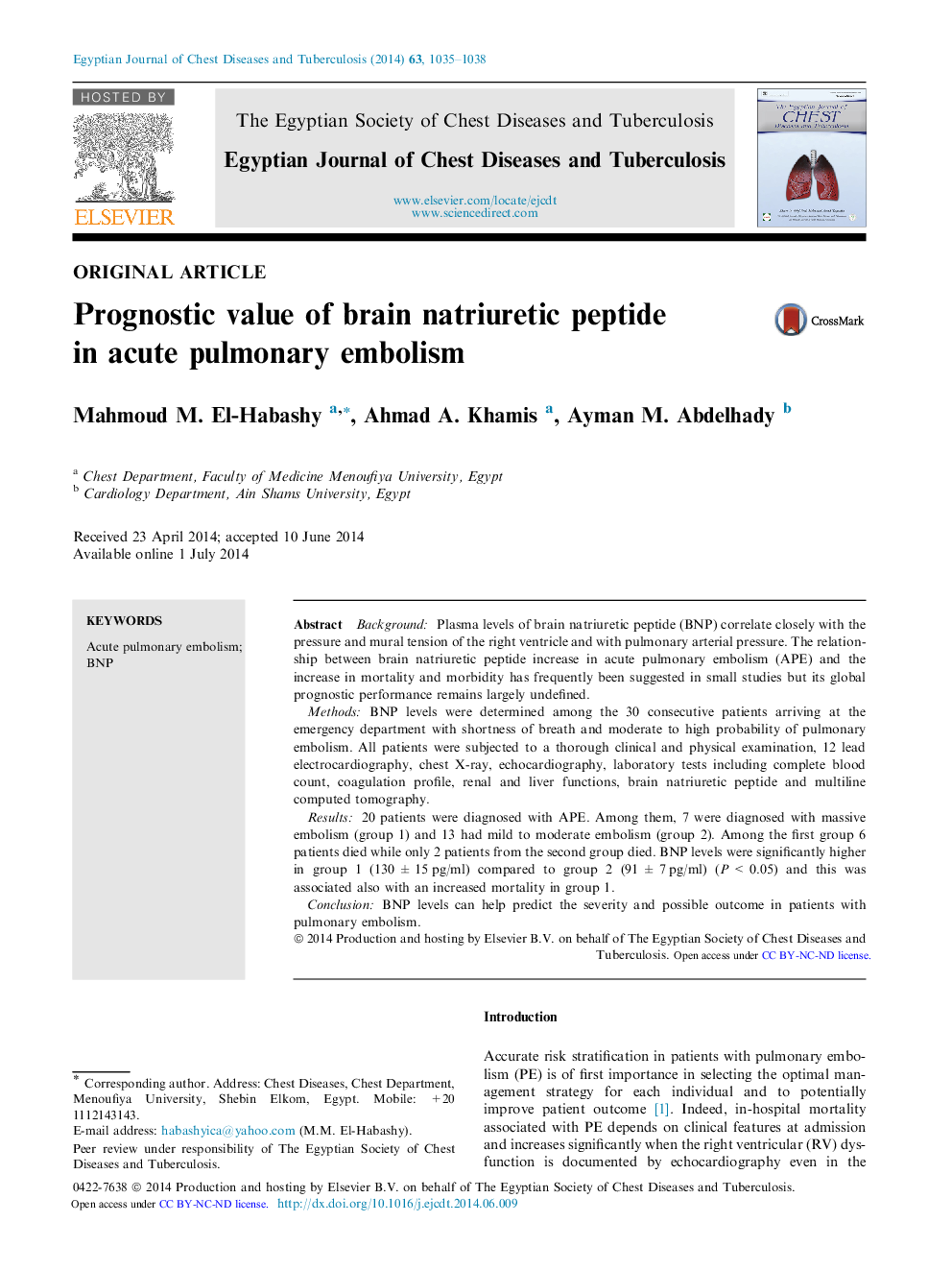| Article ID | Journal | Published Year | Pages | File Type |
|---|---|---|---|---|
| 3400245 | Egyptian Journal of Chest Diseases and Tuberculosis | 2014 | 4 Pages |
BackgroundPlasma levels of brain natriuretic peptide (BNP) correlate closely with the pressure and mural tension of the right ventricle and with pulmonary arterial pressure. The relationship between brain natriuretic peptide increase in acute pulmonary embolism (APE) and the increase in mortality and morbidity has frequently been suggested in small studies but its global prognostic performance remains largely undefined.MethodsBNP levels were determined among the 30 consecutive patients arriving at the emergency department with shortness of breath and moderate to high probability of pulmonary embolism. All patients were subjected to a thorough clinical and physical examination, 12 lead electrocardiography, chest X-ray, echocardiography, laboratory tests including complete blood count, coagulation profile, renal and liver functions, brain natriuretic peptide and multiline computed tomography.Results20 patients were diagnosed with APE. Among them, 7 were diagnosed with massive embolism (group 1) and 13 had mild to moderate embolism (group 2). Among the first group 6 patients died while only 2 patients from the second group died. BNP levels were significantly higher in group 1 (130 ± 15 pg/ml) compared to group 2 (91 ± 7 pg/ml) (P < 0.05) and this was associated also with an increased mortality in group 1.ConclusionBNP levels can help predict the severity and possible outcome in patients with pulmonary embolism.
